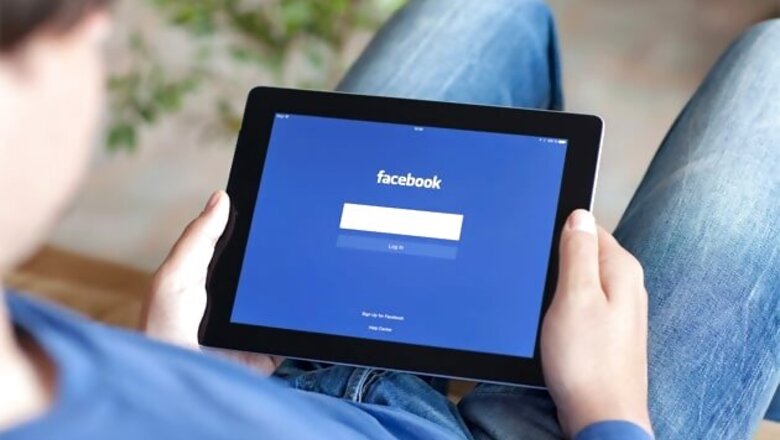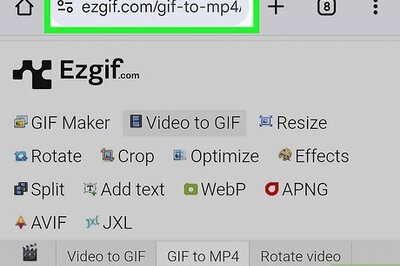
views
On earth, the physical landmass demarcated by boundaries and borders among the sovereign Nation States, China is the world’s largest populated country at 1.36 billion in 2015 followed by India at 1.25 billion and the USA at 320 million.
Founded in 2004 at Harvard University, Facebook is the most popular online social media website. In the virtual world or cyberspace, Facebook has the largest number of subscribers transcending the demarcations of continents and countries. According to statista.com, in the first quarter of 2015, Facebook had 1.44 billion monthly active users (are those logged in to Facebook during the last 30 days). Facebook has subscribers more than the population of China, and if China allows Facebook to have its presence like it once did with Rupert Murdoch’s STAR (Satellite Television of Asia Region) network, Facebook will emerge as the most populated entity in the world but barring China and totalitarian regimes: a snippet of information can reach out to a wide mass across the world! Unless, there is another social media website like Facebook that will draw users to its fold: remember MySpace?
Irrespective of China allowing Facebook into its territories (physical and virtual), Facebook has carved a niche for itself among the digital users in the world.
Facebook could be reined in if a country decides to block it! The Nation State is still a powerful entity let it be democratic or totalitarian or theistic state.
For people with Internet connectivity either to a computer or to a mobile phone (Smartphone) Facebook is there to share information between individuals and among people. The information could be shared in multimedia formats too: audio, video, photographs, text and animations. One can reach out to the world, or to his or her milieu (group) with its limitations and advantages.
Internet connectivity is a privilege for many countries and individuals across the world particularly in the Southern Hemisphere but for countries in the Northern Hemisphere (except for countries of former Communist bloc and North Korea) it is a basic. Facebook is the online space to share views, personal and professional information and also news that happen around us and among us.
Facebook sensed its subscribers are also reading news here: news that is posted by him or her from there and here and somewhere. It concluded that its subscribers need not visit an established media organization’s website let it be objective news & current affairs’ television channel or a newspaper.
For netizens, being on Facebook also helps users to get news. They do not have to go after news: news comes to them throughout the day; day and night. In some instances, news comes first on Facebook!
Facebook found out the ‘paid journalists’ are also trawling its pages for information: press releases, photographs, videos (amateur and professional), raw and unedited footage posted by someone from almost nowhere, information of its subscribers (you never know who will make news and when: a journalist’s oeuvre is wider and deeper).
Facebook realized newspapers and television channels have become virtual and real parasites: sucking out information of one kind or the other from it and spewing that at somewhere else where someone is also paying either directly or indirectly.
Facebook stumbled upon few cents and pennies but to collect them it turned to left and the right: Instant Articles.
Instant Articles.
The news organizations that have signed up to Facebook’s Instant Articles can post ads in their articles and keep their revenue. If they cannot find advertisers for their online articles on Facebook, Facebook will market their space!
Facebook also showed its carrot and stick to media supernovas in the USA to accept the offer of Instant Articles: The New York Times, National Geographic, BuzzFeed, NBC, The Atlantic; Spiegel and Bild in Germany, BBC and The Guardian in the UK. Initially, the Instant Articles will be available on iPhone.
In Western developed countries, the circulation of newspapers is declining, and the television is on the threshold of death while Smartphone has become almost the home and the home-away for almost everything: information, entertainment and communication.
Unable to find an alternative model to sustention and flourish, the media organizations in the US, the UK and Germany have lapped up to Facebook’s offer. Facebook said in its blog: “As more people get their news on mobile devices, we want to make the experience faster and richer on Facebook. People share a lot of articles on Facebook, particularly on our mobile app. To date, however, these stories take an average of eight seconds to load, by far the slowest single content type on Facebook. Instant Articles makes the reading experience as much as ten times faster than standard mobile web articles.”
But note that the none of the Rupert Murdoch’s news channels and newspapers (broadsheets and tabloids) has not succumbed to the Facebook’s offer. Probably the last surviving global media moghul is confident to pip Facebook’s offer and rise above it. The Times will reveal!
Facebook is entering into a new phase in giving ‘news’ to its users: Instant Articles. Be on Facebook to read (news), watch, listen and share!
Will Indian media organizations sign up to Facebook’s Instant Articles? Unless they see tangible evidence of more rupees (or paid in US $), or assured number of viewers and readers (online and offline) coming to them, they may not.
Media in India is diverse. There is no clear-cut monopoly and duopoly by media organizations either in a state or in a region (Southern or Northeastern, Deccan or Hindi heartland). Moreover, India is still at a phase where there is fertile readership and buyers for newspapers, there are viewers for both news and current affairs albeit more for entertainment. Traditional media is not stagnating nor declining like in the West. Moreover, the availability of internet to Indians is not uniform and it remains a privilege for the majority.
Indian media may not be susceptible to Facebook’s Instant Articles but it will carve up media’s audiences to its site as digital users rise: Facebooking?
India has the second largest Facebook users after the USA. But by 2017, India will have the largest mobilephone users (145.9 million) followed by the USA (138.8).
With the rise of social media users, the media landscape will beckon changes in India.
(Kovuuri Ganapati Reddy is the author of ‘Handbook of Journalism & Media: India, Bharat, Hindustan’. He can be reached at [email protected])
















Comments
0 comment